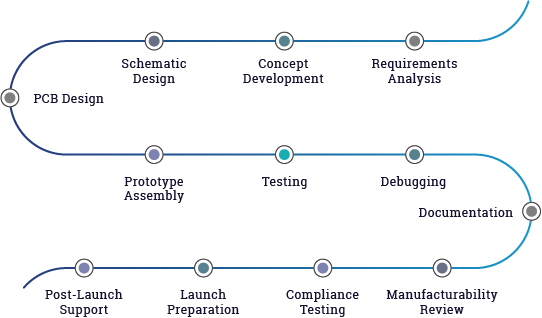Hardware Engineering
Hardware engineering refers to the design, development, and maintenance of physical components and systems in the fields of electronics and computer technology. It involves creating, testing, and verifying the design of components, such as microprocessors, circuit boards, and other electronic devices, to ensure they meet the requirements and specifications of a particular application or product. Hardware engineers work closely with software engineers to integrate hardware and software components into a seamless and functional system.
Hardware engineering in medical devices is critical for developing highly reliable, precise, and regulatory-compliant healthcare solutions. From diagnostic equipment and imaging systems to implantable and wearable medical devices, hardware design must ensure high performance, low power consumption, and seamless integration with AI, IoT, and cloud technologies.
At Silmates, we specialize in end-to-end medical hardware engineering, covering PCB design, sensor integration, signal processing, power optimization, and regulatory compliance (FDA, IEC 60601, ISO 13485, ISO 14971, HIPAA, MDR).

Key tasks performed by hardware engineers include:
Circuit design: Creating and designing circuits for building blocks of the system architecture, including selecting components to meet specific requirements and specifications.
PCB Design: Designing an art work of the PCB considering shape, size, mounting, performance requirements, cost, placement requirements of specific circuit or components, manufacturability, testability other specific requirements.
Prototype development: Building and testing prototypes to validate the design and identify any issues that need to be addressed.
Debugging: Debugging hardware problems and resolving any issues that are discovered during the testing and validation process.
Compliance testing: Ensuring that the hardware meets relevant industry standards and regulations, such as those related to electromagnetic compatibility (EMC) and environmental safety.
Production support: Providing technical support to the manufacturing team during the production process and ensuring that the hardware is manufactured to the specified quality standards.
Hardware engineering is a critical aspect of the development of many products, including computers, consumer electronics, medical equipment, and industrial automation systems. A successful hardware engineer should have a strong background in electrical engineering, computer science, and/or physics, as well as experience with digital and analog circuit design, testing, and troubleshooting
Process Flow Diagram

